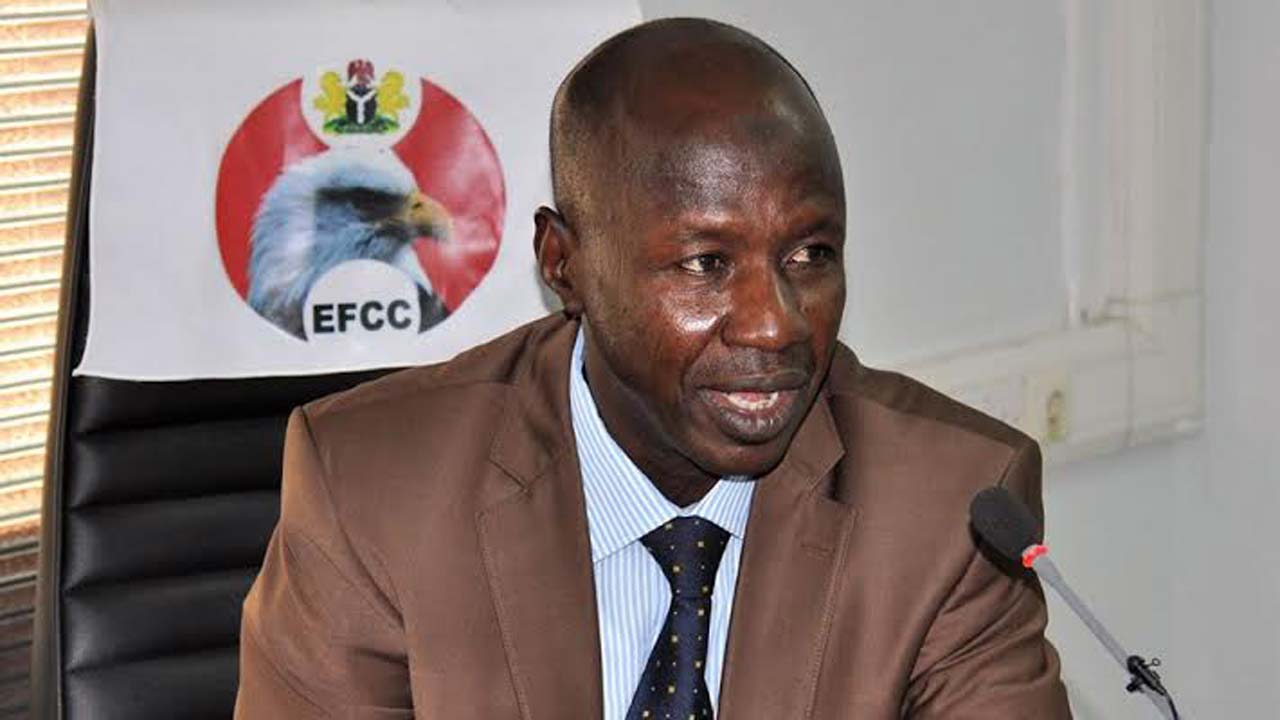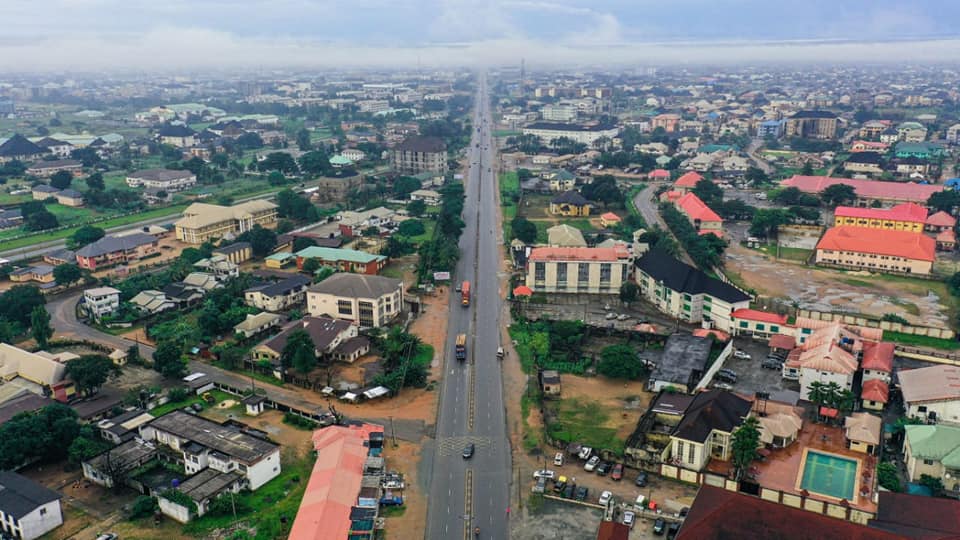
I noticed the context of ‘Ibrahim Magu and a chaotic presidency’ in August 2017, barely two years into the strange tenure of the Acting Chairman of the EFCC. I commented on it then in an article titled, ‘Magu and a chaotic presidency’. https://guardian.ng/opinion/magu-and-a-chaotic-presidency.
It is still sad to note that the chaos has not been resolved in June 2020. As I noted then, ‘Too many big trees are falling on big trees daily in Nigeria and even Abuja may be finding it increasingly intricate deciding which one to remove first, especially with the way things are falling apart anywhere we go now. What would one choose to comment upon now in a maze of choices in the polity? The restructuring noise level has become so unbearable to the principalities and powers in the National Assembly that they are regretting their inconclusive voting on constitution amendment, a volatile issue that seems to have assumed a national security dimension. Presiding officers of both chambers of the federal legislature are already hinting at the possibility of some cognitive restructuring and a recast of votes on the controversial devolution of powers and other vital issues in federalism paradise lost in 1966. Curiously, while the dust was settling on the devolution of power palaver, the Arewa youths, quit notice givers to our Oriental brothers too began speaking in tongues again on the eve of the countdown to the 90th day of the medical vacation of the president. Some governors are also saying that they have asked President Muhammadu Buhari to continue to rest, sorry recuperate in the United Kingdom…’
Among the trees that were falling on trees then was that Abubakar Malami (SAN), Attorney General of the Federation was then at loggerheads with the EFCC over the control of the anti-graft commission. I had then considered that rift between the AGF and the EFCC, a weightier matter of urgent national importance that had been discussed in this column more than two times then. I had then noted here that there was no question that the Attorney General of the Federation had a critical role to play in managing prosecution, especially at the EFCC, which was then losing so many high-profile corruption cases, no thanks to poor prosecution. The 1999 Constitution gives the prosecutorial powers in the criminal justice system to the Attorney General of the Federation and the states.
What is more, the Presidential Advisory Committee Against Corruption was then criticising the curious aloofness of the Attorney General of the Federation on anti-corruption cases since 2015. Specifically, the AGF was blamed for the loss of many serious cases because of poor prosecution.
It was no surprise when in the first week of August 2017, the AGF took practical steps to do his work. But Magu’s men who had been suspecting the AGF of being part of the revolt against his (Magu’s) confirmation by the Senate, said a letter written for the AGF to oversee the handling of high-profile cases was an attempt to take over his (Magu’s) job.
In a curious twist on that first week of August, the presidency reportedly warned the EFCC to respond to a letter written to it by the Ministry of Justice, about high-profile investigations, or face sanctions.
The letter, which then sparked speculations of a rift between the ministry and the EFCC, directed the commission to submit details of its investigations into ‘serious cases’ to the Justice Ministry. Such cases include matters with international dimensions, cases involving alleged misappropriation of N50m and above; cases of fraud involving numerous suspects, among others.
According to the letter dated August 1, the Minister of Justice, Abubakar Malami, accused the EFCC chairman, Ibrahim Magu, of violating section 10 of the commission’s performance regulation guidelines, 2010.
The Attorney-General in the said letter observed that the commission had been in breach of the above cited provision of the regulation for some time, hence this reminder to the commission to ensure compliance going forward.
I had also noted then that the presidency, which nominated him (Magu) to the Senate had worked harder than adversaries who would not want him confirmed. It was curious then why the presidency that sent his name to the Senate could not scrutinise two damaging reports by the office of the Director-General, Department of State Services (DGDSS), which said the president’s nominee should not be confirmed. The two reports for the two times Magu had been nominated, specifically stated that the police officer had failed the DSS’s integrity test, adding that he was not a fit and proper person to hold that office. The Senate then cashed in on the damning reports to reject him. The upper house had asked for a replacement and vowed that they would not accept the nomination of Magu again. What was worse then, the same presidency was said to be seeking a curious Supreme Court’s interpretation of Section 171 of the 1999 Constitution that does not contain EFCC as a constitutional body. Two professors of law in the presidency, one the acting president, and the other, chairman of the Advisory Committee Against Corruption are rock-solid for Magu, who they insist might not require Senate confirmation.
I had also said then that it was a pity that Magu, the man the presidency insisted would not be replaced was between the devil and a deep blue sea. They claimed then that the president preferred Magu but the president’s main men hated him. Curiously, it appeared since then that only the two law professors in the presidency wanted Magu. There was also then a strongly worded letter from the Attorney General who agreed with one of the law professors that, “the EFCC is technically incompetent in prosecuting cases in the law courts”. There has been no respite for the taciturn Magu the DSS first technically knocked out. I had predicted then that, “It is crystal clear that Magu may not be able to survive the ‘unkindest cuts’ from the hawks in the presidency. The doves do not have sufficient clout to save him from the latest internal ballistic missiles – the Justice Ministry has set off. One can now look into the seed of time and see that sooner than later, the embattled Borno-born police detective will be accused of ‘indiscipline and insubordination’ to his supervising Minister, who is also the Attorney General of the Federation: the officer of the law, who has the power to prosecute and withdraw from prosecution”. That was three years ago.
It is unfortunate that five years after Magu’s nomination, the Senate has not confirmed his appointment, no thanks to a chaotic presidency. Last week another ‘missile’ from the same AGF, Malami landed on Magu, again very hard.
This time, Malami, Minister of Justice and Attorney-General of the Federation (AGF), was said to have recommended the sack of Magu.
According to reports, Malami asked President Muhammadu Buhari to sack Magu over “weighty” allegations, including the diversion of recovered loot.
In addition to allegedly re-looting recovered loot, he was said to have also accused the EFCC acting chairman of insubordination and misconduct, similar accusations the DSS raised in 2017. In a memo to the president, the AGF was also said to have shortlisted three candidates to be considered as Magu’s replacement. Though Malami hasn’t responded to any enquiry, decent sources said to be privy to the memo had revealed that the minister actually listed “22 weighty allegations” against the EFCC boss.
On October 6, 2019, I reminded the president here in another article titled, ‘When Will Senate Confirm Magu?’ https://guardian.ng/opinion/when-will-senate-confirm-efcc-chairman/
Below is an excerpt from the article that the presidency also ignored:
In this country where strong men rule more than the law, it is relevant for me to remind the nation for the fourth time since 2015 that Ibrahim Magu, an officer of the law has been acting as Chairman of the Economic and Financial Crimes Commission (EFCC) since November 9, 2015. The President who nominated him has sworn in for a second term six months ago.
The Acting President who nominated him twice while the President was on medical vacation in 2017 has since been sown in for a second term too. The Director General of the State Security Service (SSS) who wrote to the Senate to decline confirmation was removed from office on August 7, 2018. The President who presided over the Senate (of the 8th Assembly) that refused to confirm Magu lost his re-election bid: didn’t return to the Senate inaugurated five months ago. All the president’s men including the Attorney General of the Federation and Minister of Justice (who didn’t deny scoops that their minds were bent against Magu) have returned to their offices.
A user-friendly Senate leadership has since June this year assumed duty. But Commissioner of Police, Magu is still left in the lurch. What do they want to do with him? When will they fulfil the requirement of the law concerning his office? Where are the Professors of Law in the presidency who said they relied on Mr. Femi Falana’s legal thesis that a section of the constitution might have insulated Magu from Senate confirmation? Where are the Law Professors a Federal High Court told that their views on the powers of the senate could not be taken as having any jurisprudential significance? What happened to the Court’s ruling since 2018 that the Senate has powers and should confirm any candidate to the office of the Chairman of the EFCC according to the EFCC Act? Why was Magu’s name not resent to the Senate, which confirmed the ICPC Chairman in December, 2018 even when the then senate leadership soft-pedalled on the Magu’s complicated legal issue? Do they really want confirmation of Magu as EFCC Chairman? How can chairman of such a powerful body set up by law since 2003 be acting for more than four years? Is there no limit to how long an officer of the law can act? Why have the relevant professional bodies, especially the Nigerian Bar Association (NBA), the Nigerian Labour Congress (NLC) and Nigeria Union of Journalists (NUJ), etc kept quiet over this serious national complications caused by senior lawyers in the presidency? Are they waiting for resurrection of a Gani Fawehinmi to test their integrity on this issue in court?
What is the status of Magu now in the eye of the law? Has there been a properly constituted EFCC since November 9, 2019? What will Magu take away from the EFCC? Should he be addressed as former Acting Chairman of EFCC if they remove him without Senate confirmation? Why has the same presidency failed too to ask Magu to account for loot recovery since he assumed office? These are the questions our chaotic presidency nurtured by massive procrastination has provoked.






